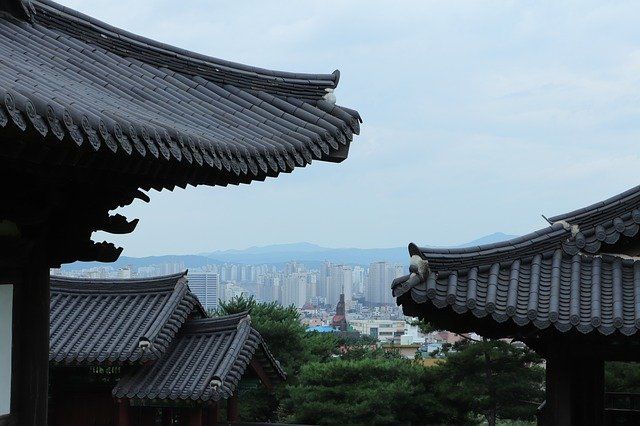This comes from a Korean pastor, partly in response to September Evangelical Times‘ coverage of Korea. We are pleased to place it before our readers. Are there any other overseas Christians who want to respond to Missionary Spotlight?
It is a great joy to ‘meet’ readers of ET for the first time, through this letter. As I am pastor of a congregation in Korea (Samyang Presbyterian Church, Seoul), I always give thanks to our Lord for your countrymen. Robert J. Thomas was the first Protestant missionary to Korea, and became, in 1866, Korea’s first Protestant martyr. In many ways Korean Christians are debtors to Welsh and Scottish Christians. A Scottish missionary to Manchuria, Mr Ross, was the first to translate the New Testament into Korean. Since then the Korean Church grew rapidly, right up to the late 1980s.
There are now many denominations here, including nearly one hundred different Presbyterian groups, Methodists, Baptists, Pentecostals, the Jesus Korean Holiness Church and others.
Korea is at present experiencing growing nationalism. This is promoted, amongst other things, by our own government, intent on ‘preserving’ Korea’s historical and cultural ‘heritage’. In the army, Buddhist monks have the same access to soldiers as Christian chaplains. In the student world, non-Christian students have tried to erect symbols of traditional Korean culture (wooden idols) at the gates of Christian universities. There is also much materialism, particularly amongst young people, whose attendance at places of Christian worship is declining.

Strengths
The Korean Church is spiritually at its strongest in its prayer life. This is demonstrated by its early-morning prayer meetings, held daily at 5.00 a.m. in all evangelical churches. This practice began in Pyongyang (now the capital of North Korea) during the Korean Revival of 1907. A Friday night prayer meeting is also commonly held, often lasting until midnight.
Secondly, Korean Christians are zealous to share their faith, both in public and private. Christian women can daily be seen distributing gospel tracts and leaflets; the gospel is proclaimed in the streets and on underground trains.
Thirdly, Korean Christianity has been marked by the sacrificial giving of believers. Many church buildings have been erected only because of the Christians’ willingness to sell or donate their own resources. Some have contributed from wrong motives, but others out of a genuine love for the Lord Jesus Christ. There have been, until the present economic crisis, large monthly collections for the work of overseas missions.
Weaknesses
The Korean Church, however, has some real weaknesses. The greatest of these is the gap between Christian profession and living. Sound doctrine in the churches is not matched by practical holiness. Many Reformed churches adhere to the Westminster Confession of Faith, with its soli scriptura emphasis, but then in practical ways organise themselves according to Confucian traditions.
This applies particularly to church government, where the pastor tends to be treated as ‘head’ of the church, with the elders and deacons ranking under him. I have to admit with shame that, in some ways, we are Christians by profession, Buddhists in thought, and Confucians in behaviour. One of my prayer burdens is that Reformed Christians here should become a vehicle of living truth to a dying society.
Biblical knowledge lacking
Secondly, pastors and church leaders lack biblical knowledge. This has often resulted in them preaching false doctrines. Though many Christian books in Korean are available, many church leaders are taken up with a search for ‘revival’, which really means they are looking for growth in numbers and financial income. Few pastors expound the Bible in a systematic way; most prefer to preach topically, not being trained in the expository method. Topical sermons can easily become based on what the preacher wants to say, rather than on what the text teaches. Thus, the Bible becomes just a reference book for the preacher’s own ideas.
Fellowship
Finally, there is too little deep Christian fellowship amongst Christians. There are many ‘nice’ cell groups, which meet once a week, but, after following the ‘pattern of worship’ prescribed by their churches, they readily degenerate into worldly or secular discussions, rather than times of spiritual edification. This results in failure to apply biblical truths to Christians’ lives. This is why I try, in my own church, to get the congregation reading good Christian books and then talking together of the blessings received through reading them. I encourage them to discuss with one another the problems they face in their daily lives.
These are the points I want to raise with you, dear Christian brothers and sisters. Please do pray for us, we need to re-learn our own spiritual history and the Reformed faith. We still aspire to be faithful to the Word of God. One day we will be in the perfect place that was provided by our Lord Jesus Christ. May God bless you all in a mighty way.













